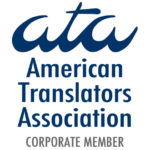A popular myth is that if you don’t start learning a language from an early age, you can never really learn it. If you choose to believe this, chances are that you will believe you are “too old to learn” and will not bother trying. Although children have an impressive capacity for learning more than one language, that doesn’t mean that adults can’t also achieve great things with a foreign language as well. However, as an adult, you will have to be firm with your inner (defiant) child who might be a little resistant to what is not familiar or comfortable. See, real children have adults who do this for them. Mom, Dad, Grandma, a teacher (whose lessons are not optional) or some authoritative figure guides their learning by communicating with them in the language. Children learn to communicate in the language because they don’t have a choice.
Adults, however, usually do have choice. They already speak one language and if speaking a different one feels uncomfortable or inconvenient, they can say, “I don’t speak _______,” and not make any effort to learn or try. This happens even with people who are consciously trying to learn a new language. As soon as it starts to feel “too hard,” they tell themselves, and everyone else, that they just can’t do it. Then, other people agree with them, which promotes and enforces the myth that it really is difficult for an adult to learn a new language. If you believe that you can’t do it, it is very unlikely that you will bother trying.
Another myth is that you have to be some kind of genius or have an Ivy League educational background to speak more than one language. If that is the case, then all those migrant workers and immigrants from humble villages of poor countries, who do unskilled labor for very modest salaries in foreign countries and learn a completely different language in the process, must be a lot smarter than you. Maybe they are and maybe they’re not. However, if they can learn a new language, why can’t you? The answer is probably because they have to in order to survive and you do not.
Although being an adult, in your comfort zone, can certainly serve as an “obstacle” if you let it, you also have a number of factors on your side.
You already have a solid base
If you learned anything about English grammar at any point during your educational history, you already have a linguistic base. You already understand the concept of verbs, nouns, articles, etc. It’s true that these are not exactly the same in another language, but at least it’s a start.
You understand how it can enrich your life
Even if you don’t need a foreign language in order to survive and even if no one is forcing you to do it, you probably understand what an additional language can offer you. In addition to opening doors for you professionally, speaking an additional language presents opportunities for exciting travel and cultural experiences. It will also help you appreciate new and different music and literature. Such benefits might mean little to a small child or adolescent, but they provide additional motivation to a sensible and curious adult.
You have more self-discipline
Although you might not have someone like a parent or teacher telling you that you have to learn, you have an idea of how it will benefit you and, as such, you will be more motivated to make the effort. That is, if you don’t buy into the myth that it’s “too hard.”




